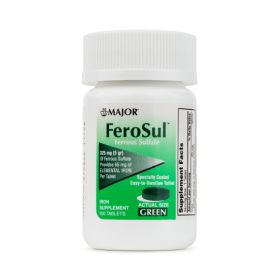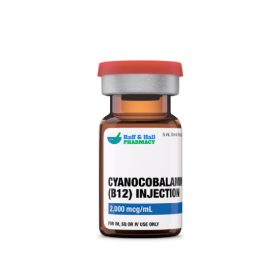Zinc Sulfate Injection (30 mL Vial)
Zinc’s Role in the Human Body
Second only to iron in abundance, zinc is among the most crucial trace minerals in the human body. Though zinc appears basic in form, as a divalent cation and the first element of group 12 in the periodic table, it has a Very complicated role in preserving health. Including alkaline phosphatase, lactic dehydrogenases, and RNA and DNA polymerases, over 100 different enzymes require this crucial micronutrient. Zinc helps vital processes including DNA and RNA production, cell proliferation, differentiation, and repair via these enzymes. It also helps to stabilize the structural proteins and cell membranes.
Gene regulation is among the most amazing roles of zinc. It accomplishes this via zinc finger proteins (ZnF), which govern the expression of genes hence effectively control the production of proteins governing cell activity. Beyond this, zinc helps control the immune system, guaranteeing the body may mount an efficient defense against pathogens.
Since the human body cannot create zinc, dietary sources are needed. Normal serum levels in adults range from 70 to 250 μg/dl. Most of it is eliminated in feces, with smaller quantities lost in urine and sweat.
Government and Supplementation
Usually given orally or parenterally, zinc sulfate is often used in medical contexts. Especially in instances of zinc deficiency, which can cause major health issues, supplementation is quite vital.
Symptomatic Zinc Deficiency
Since zinc is involved in so many important processes, its deficiency shows itself in a great range of manners. Weight reduction, hair loss, slow wound healing, and skin conditions including pemphigus or lichen planus are among the typical symptoms. Adults may have mood problems and mental exhaustion, while newborns could have impaired cognitive and motor development. Zinc shortage also impairs immune response, hence boosting infection susceptibility. Furthermore, it may aggravate heart problems, interfere with bone mineralization resulting in osteoporosis, and lower folate absorption, therefore producing megaloblastic anemia.
Since zinc is a significant player in several key human body processes, its mode of action differs according on the organ system. also the pertinent process at work.
Immunological System and Anti- inflammation
Zinc acts as a second messenger for immunological cells in the immune system; intracellular zinc aids in immune system signaling events. It helps monocytes and macrophages grow and controls macrophagic activities including phagocytosis and inflammatory cytokine synthesis. Additionally suppressing Tumor Necrosis Factor alpha (TNFa) and interleukin1, zinc inhibits phosphodiesterase hence raising levels of guanosine3′ 5′ cyclic monophosphate. beta (IL1B), along with other inflammatory cytokines. Furthermore boosting peroxisome proliferatoractivated receptor alpha expression, zinc helps to downregulate inflammatory cytokines and adhesion molecules. Because of these and several other reactions in the immune system, zinc is regarded to be a crucial antiinflammatory ingredient in the human body.
Zincs’ Impact on Skin
Zinc acts on the development and upkeep of skin cells in the skin via various pathways. Studies have found that zinc promotes the development and survival of keratinocytes in the stratum spinosum; furthermore, it inhibits the activation of These keratinocytes provide interferongamma and tumor necrosis factoralpha. Zinc also actively contributes to the formation of Langerhans cells, a kind of antigenpresenting cells in the skin. Additionally, zinc supports the expression of melanocytes in the human skin by means yet unknown.
Central Nervous System
During neurodevelopment, zinc is vital in the creation and development of the growth factors, hormones, enzymes, and proteins; minor zinc in the central nervous system. Studies have revealed that lack during pregnancy causes memory and learning impairments. The first brain structure to form during pregnancy, the neural crest, and the process of stem cell proliferation throughout neurogenesis all benefit from zinc in development. Free zinc also has inhibitory effects on the release of glutamate, a stimulating neurotransmitter.
Although exogenous zinc supplements are usually rather well tolerated, certain conditions or circumstances may call for some level of caution before they are given. These include:
Administering zinc to those with renal impairment calls for caution. Renal disease may compromise zinc excretion in urine and raise the chance of developing zinc toxicity as zinc is excreted in the urine.
Some people can be sensitive to other chemicals included in the zinc supplement. People who have known sensitivity to any of the other chemicals should not be given foreign zinc supplements.
Zinc is known to interact with several other drugs which may lessen their effectiveness. Giving zinc to people concurrently taking other medications calls for utmost caution. Quinols, tetracyclines, and penicillamine are among the medications that may interact with exogenously given zinc; zinc slows down the absorption of these drugs from the gut. Additionally, thiazide diuretics raise the renal excretion of zinc and may also deplete zinc levels in the tissue when given together with zinc. When given with other medicines, serum zinc levels might have to be watched.
Apart from the possibility of getting hypersensitivity reactions to outside zinc, watch for zinc toxicity as the most frequent negative consequence. This might happen via either an increased consumption of zinc or a decreased excretion. Usually linked to toxic zinc levels in the human body is a noticeable reduction in serum copper levels. Among others, some of the clinical symptoms that may develop from zinc poisoning are hematemesis, hematuria, acute tubular necrosis, sideroblastic anemia, granulocytopenia, diarrhea, and myelodysplastic syndrome. Should zinc toxicity develop, all externally supplied zinc should be stopped at once and steps should be taken to restore the zinc levels back to baseline.
Because the hazards of zinc deficiency are far more severe than any risks that could result from its use, it can be used in pregnancy. As stated before, zinc traverses the placenta to the fetus where it supports fetal neurodevelopment.
During lactation, zinc passes from nursing mothers through breast milk to babies.
Store this medication at 68°F to 77°F (20°C to 25°C) and away from heat, moisture and light. Keep all medicine out of the reach of children. Throw away any unused medicine after the beyond use date. Do not flush unused medications or pour down a sink or drain.
- ”Zinc sulfate”. Available: https://go.drugbank.com/drugs/DB09322– LinkOpens in New Tab
- Maxfield, L., Crane, J.S., “Zinc Deficiency”, StatPearls. 2020. Available: https://www.ncbi.nlm.nih.gov/books/NBK493231/– LinkOpens in New Tab
- Saper, R.B., Rash, R., “Zinc: An Essential Micronutrient”, American Family Physician, vol.79 issue 9, pp.768 – 772. 2009. Available: https://www.ncbi.nlm.nih.gov/pmc/articles/PMC2820120/#– LinkOpens in New Tab
- Mocchegiani, E., Romeo, J., Malavolta, M., Costarelli, L., Giacconi, R., Diaz, L., Marcos, A., “Zinc: Dietary intake and intake of supplementation on immune function in elderly”, Age, vol.35 issue 3, pp.839 – 860. June 2013. Available: https://www.ncbi.nlm.nih.gov/pmc/articles/PMC3636409/– LinkOpens in New Tab
- Prasad, A.S., “Discovery of Human Zinc Deficiency: Its impact on Human Health and Disease”, Advances in Nutrition, vol.4 issue 2, pp.176 – 190. March 2013. Available: https://www.ncbi.nlm.nih.gov/pmc/articles/PMC3649098/– LinkOpens in New Tab
- Gammoh, N.Z., Rink, L., “Zinc in Infection and Inflammation”, Nutrients, vol.9 issue 6. June 2017. Available: https://www.ncbi.nlm.nih.gov/pmc/articles/PMC5490603/– LinkOpens in New Tab
- Ogawa, Y., Kinoshita, M., Shimada, S., Kawamura, M., “Zinc and skin disorders”, Nutrients, vol.10 issue 2. February 2018. Available: https://www.ncbi.nlm.nih.gov/pmc/articles/PMC5852775/– LinkOpens in New Tab
- Gower-Winter, S.D., Levenson, C.W., “Zinc in the central nervous system: From molecules to behavior”, Biofactors, vol.38 issue 3, pp.186-193. May 2012. Available: https://www.ncbi.nlm.nih.gov/pmc/articles/PMC3757551/#:~:text=Zinc%20has%20also%20been%20implicated,these%20and%20other%20neurological%20disorders– LinkOpens in New Tab
- ”Zinc sulfate Pregnancy and Breastfeeding Warnings”, Drugs. Available: https://www.drugs.com/pregnancy/zinc-sulfate.html#:~:text=Zinc%20sulfate%20has%20been%20assigned,age)%20is%20recommended%20during%20pregnancy.– LinkOpens in New Tab
- ”Zinc – Fact Sheet for Health Professionals”, National Institutes of Health, Office of Dietary Supplements. Available: https://ods.od.nih.gov/factsheets/Zinc-HealthProfessional/– LinkOpens in New Tab
- Agnew, U.M., Slesinger, T.L., “Zinc Toxicity”, StatPearls. Available: https://www.ncbi.nlm.nih.gov/books/NBK554548/





